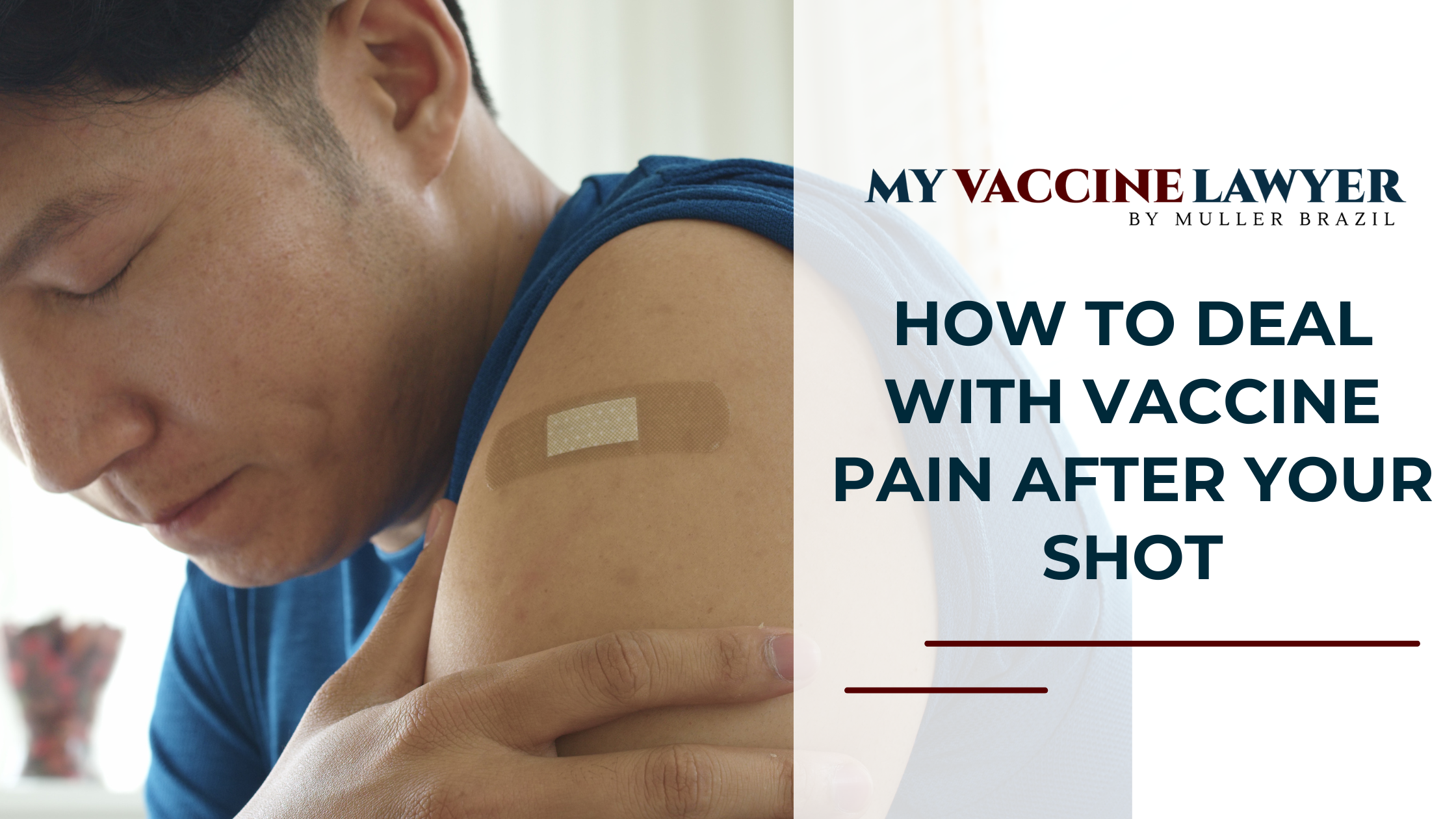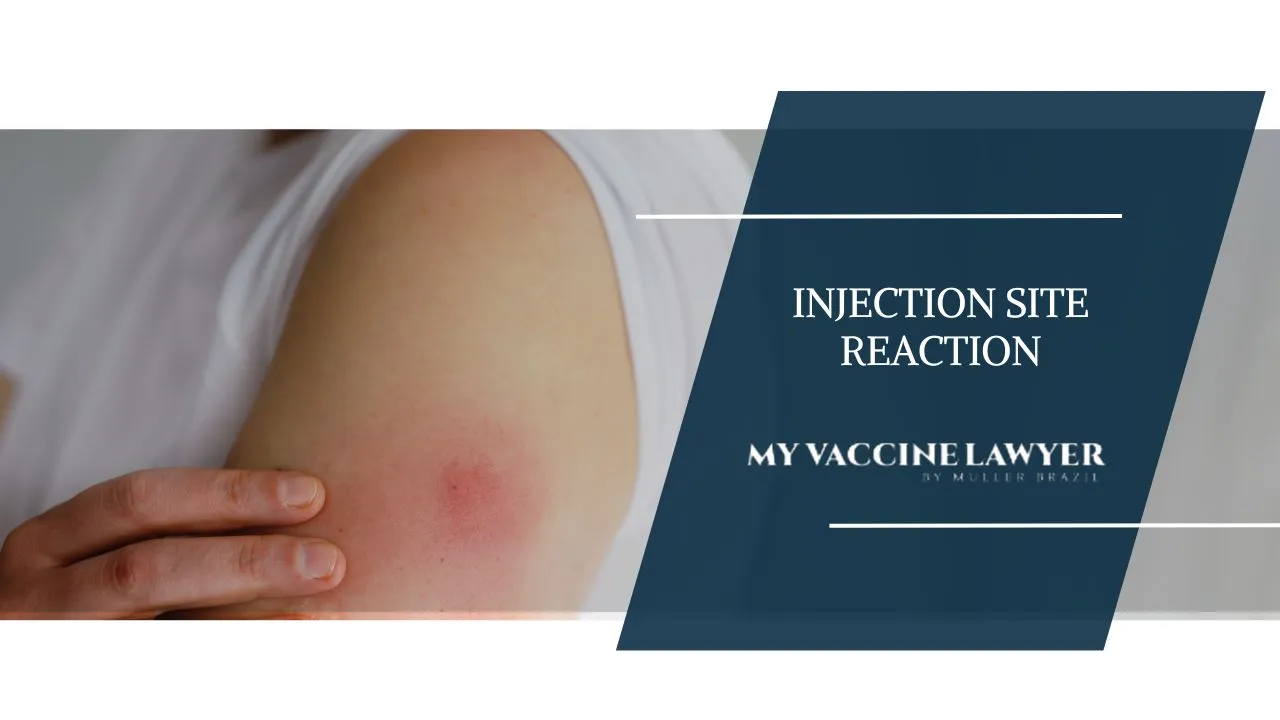How to Deal with Vaccine Pain After Your Shot
For most adults and older children, the soreness lessens within a few days. But for some, arm pain can linger longer than expected or feel more...
3 min read
Vaccine Injury Law Resources / Vaccines / Miller Fisher Syndrome: Understanding Causes & Connections
 Paul Brazil
:
Sep 5, 2023 11:12:17 AM
Paul Brazil
:
Sep 5, 2023 11:12:17 AM
If you or someone you know is experiencing symptoms like weak eye muscles, breathing difficulties, or poor muscle coordination, it could be Miller Fisher Syndrome (MFS), a rare condition related to Guillain-Barré Syndrome. While the exact cause of MFS isn't fully understood, it's linked to an autoimmune response where the immune system mistakenly attacks healthy nerve cells.
Occasionally, this can happen after receiving a vaccine, though such cases are extremely rare. Understanding these connections is necessary, especially if you're noticing these symptoms after a vaccination. Awareness and early detection can lead to better management of the condition.
GBS is an autoimmune condition where your immune system mistakenly attacks the nerve cells in your peripheral nervous system, leading to muscle weakness, pain, and paralysis, among other symptoms. Miller Fisher Syndrome is an extremely rare subtype of GBS, making up between 1%-5% of GBS cases. Miller Fisher Syndrome is characterized by weakness of the eye muscles, respiratory problems, decreased muscle coordination, and the loss of deep tendon reflexes.
The exact causes of GBS and Miller Fisher Syndrome are not fully understood, there are several risk factors among populations who are more likely to develop the syndrome. By a 2:1 ratio, men are more likely to be affected than women, and older populations are more at risk, with people over the age of 55 more commonly being affected. Like with standard Guillain-Barré syndrome (GBS) , vaccination has in rare cases also been known to be a risk factor for Miller Fisher Syndrome.
Like with standard GBS, Miller Fisher Syndrome is an autoimmune disorder, where the immune system mistakenly targets healthy tissues instead of harmful substances. While the exact cause is not fully understood, a prominent theory is that vaccinations can trigger an unintentional immune response. As the intended function of a vaccine is to stimulate an immune response against certain pathogens, it is theorized that in some rare cases, the immune system may overreact beyond the intended response. This results in the development of an autoimmune disorder such as Miller Fisher Syndrome.
It is important to note that developing Miller Fisher Syndrome following a vaccination is extraordinarily rare. In a 2022 study by the medical journal Neurology, it was found that the rate of developing Miller Fisher Syndrome following a vaccination was between 0.04 and 0.62 cases per 10,000,000 vaccinations. Nearly all doctors recommend keeping up to date on your vaccinations, because the benefits far outweigh the risks.
The symptoms of Miller Fisher Syndrome are similar to GBS, but differ in several key ways. Most notably, Miller Fisher Syndrome impacts the upper body far more than GBS does, with many symptoms impacting the face. Notable symptoms of Miller Fisher Syndrome include double vision and blurred vision, drooping eyelids, issues with eye movements, and facial paralysis. As the syndrome progresses, difficulties breathing, tongue weakness, loss of coordination, and the loss of tendon reflexes in your arms and legs may also develop.
Miller Fisher Syndrome can lead to symptoms that can potentially be fatal. If you believe you have developed Miller Fisher Syndrome, seek medical attention.
There are multiple ways in which Miller Fisher Syndrome can be diagnosed. The most common methods are via CT or MRI scans in order to try to determine the exact damage to the nerve cells through imaging. However, in some cases, further testing may be required to properly diagnose Miller Fisher Syndrome. Spinal taps and blood tests are also commonly utilized in order to test for antibodies. As Miller Fisher Syndrome is an autoimmune disorder, high levels of antibodies are a sign of the condition. Other methods used to diagnose include electrode-based tests of nerve cell function. Electromyography involves thin, needle-like electrodes being inserted into the muscles to test and measure nerve activity. Similarly, nerve conduction studies involve electrodes being taped to the skin to measure the speed of nerve signals with small shocks.
Due to there being no single cause of Miller Fisher Syndrome, as well as the fact that it can lead to potentially life-threatening symptoms, treatment options vary depending on the severity and specific symptoms. Common treatment options include intravenous immunoglobulin therapy (IVIG). IVIG involves the administration of purified blood plasma containing healthy antibodies from donors, which can help prevent your immune system from attacking healthy cells. Similarly, plasma exchange involves the filtration of your own blood plasma to attempt to filter out harmful antibodies. Depending on the severity of symptoms, other treatment options include pain medication and physical therapy to regain muscle coordination and strength.
The prognosis for Miller Fisher Syndrome is good with proper treatment. Most patients begin to recover within several weeks. Depending on the severity, a full recovery can be made in most patients within two to six months, with no long-term health complications
Developing Miller Fisher Syndrome after a vaccination can be a stressful and painful thing, having a massive impact on your daily life. At My Vaccine Lawyer, we believe that you don’t need to go through it alone. Our team of experienced vaccine attorneys is prepared to help you during this difficult time, and we are prepared to fight for your rights and help you understand your legal options when filing a vaccine injury claim.
Contact My Vaccine Lawyer to take the first step towards getting the justice and compensation you deserve.
Paul Brazil is a native of Dunmore, Pennsylvania and a graduate of Dunmore High School. For his undergraduate education, he attended Bloomsburg University where he majored in political science. He then went on to earn his JD from Widener University School of Law. Following graduation from law school, Mr. Brazil worked at a large Philadelphia civil defense firm where he litigated workers’ compensation claims and Heart and Lung Act cases. In 2012, he joined with his coworker Max Muller to form Muller Brazil.

For most adults and older children, the soreness lessens within a few days. But for some, arm pain can linger longer than expected or feel more...

Getting a vaccine is a routine part of staying healthy, but that doesn’t mean it’s always comfortable. If you've recently received a pneumonia shot,...

In this blog post, we will dive into the various types of vaccine injection site reactions, their symptoms, treatment and how to prevent and manage...
